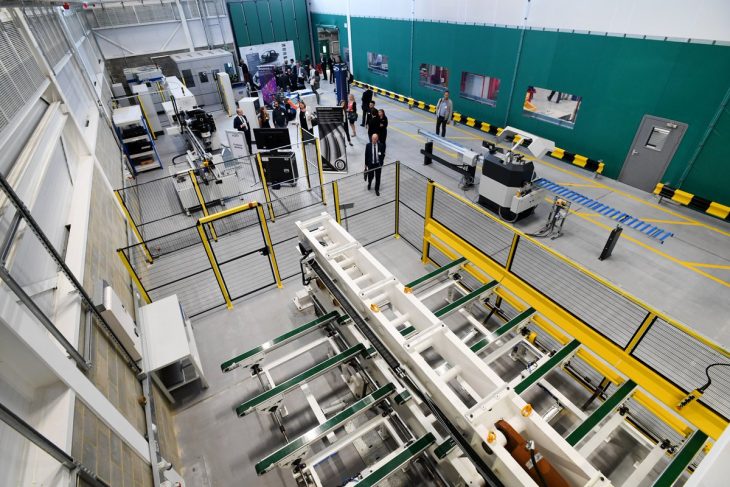Brunel University London opened its Advanced Metal Processing Centre (AMPC) at the Brunel Center for Advanced Solidification Technology (BCAST), which will enable R&D activity to enable innovations, such as lightweight car parts, to make the leap from the lab to full-scale industrial trials. This is the second phase of BCAST’s scale-up facility, following the launch of the Advanced Metal Casting Centre (AMCC) in 2016.
“The AMPC is a hugely important investment for both BCAST and for our current and future research partners,” said Prof. Zhongyun Fan, director of BCAST. “BCAST’s long-term aim is to reduce the amount of new metal mined from the ground to a minimum. So it is essential that we continue to be able to find even better ways of creating high-quality components and systems from metals that have already been used at least once.”
The 1,500 sq m AMPC facility includes industrial and pilot-scale equipment for processing and fabrication of extruded metals (novel bending processes, machining, and advanced joining); additional casting processes (gravity die casting and sand casting, etc.), and supporting materials characterization technologies (strength and fatigue testing and 3D x-ray tomography).
The AMPC received £15 million from the U.K. government, providing the equipment and infrastructure to attract industrial match funding through partners such as Constellium and Jaguar Land Rover (JLR). This is aimed at helping to develop the future generation of engineers, designers, scientists, and materials specialists — as well as accelerating automotive lightweighting through the deployment of world-leading, high-performance aluminum alloys and innovative technologies.
At the opening ceremony for the AMPC, Constellium announced the expansion of its research and development capability at Brunel with the construction of a dedicated R&D center within the campus to transition technology from the laboratory to its production facilities around the world. The University Technology Center first focused on alloy development for industrial scale castings and extrusions. Now, it will form, join, and test prototype automotive components , such as crash management systems, body structure parts, and battery enclosures for electric and hybrid vehicles.
“The automotive industry is advancing technology at an unprecedented pace, and the AMPC is a tremendous resource for automakers, allowing rapid prototyping with state-of-the art forming and joining techniques to help shape lightweight, high-strength components for the next generation of vehicles,” said Paul Warton, president of Constellium’s Automotive Structures and Industry business unit. “Constellium is thrilled to be expanding its presence at Brunel University London and to be at the forefront of development for aluminum automotive structural components.”
Warton spoke warmly about the international projects Constellium had already delivered stemming from work with BCAST, including one for Tesla: “The Model 3 is supplied with the front and rear crash management systems from Constellium that we developed with ultra-high-strength alloys here in Brunel.”

